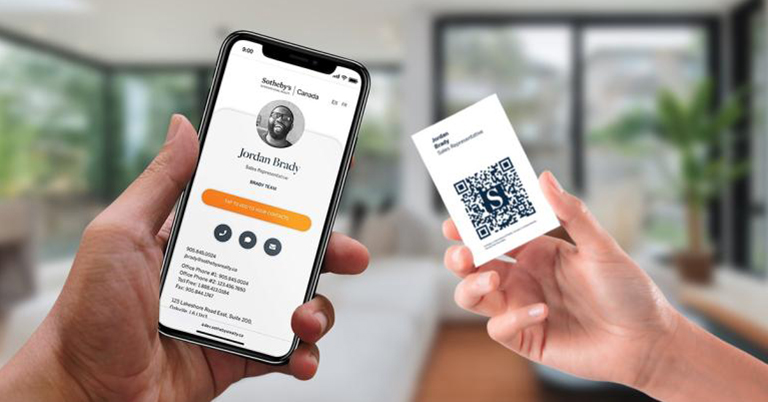In the digital age, the traditional exchange of physical business cards is evolving into
a more dynamic and efficient process through virtual business cards. These digital
representations of your professional identity require effective contact management
systems to streamline connections and enhance networking capabilities. Let us
explore various types of contact management systems that can amplify the impact of
your virtual business card in the virtual realm.
Cloud-Based Contact Management Systems
Cloud-based contact management systems offer the advantage of accessibility and
flexibility. These systems store your contact information securely in the cloud,
allowing you to access and update your virtual business card from any device with
internet connectivity. This is particularly beneficial for virtual businesses and remote
professionals who need real-time access to their contact details. Popular cloud-
based platforms like Google Contacts and Microsoft Outlook not only centralize your
contacts but also enable seamless integration with other productivity tools.
Customer Relationship Management (CRM) Systems
CRM systems are comprehensive solutions designed to manage interactions with
clients and prospects. Integrating your virtual business card with a CRM system
ensures that every interaction is logged, providing valuable insights into customer
behaviour and preferences. Salesforce, HubSpot, Pipedrive and Zoho CRM are
examples of powerful CRM platforms that can seamlessly incorporate your virtual
business card, allowing you to nurture leads, track communication history and
strategically manage your professional relationships.
Social Media Integration
Given the prevalence of social media in professional networking, integrating your
virtual business card with social platforms enhances your online presence. LinkedIn,
in particular, offers a feature where you can create a digital business card within your
profile. This card can be easily shared with your network, providing a quick snapshot
of your professional details. The advantage of social media integration lies in the
potential for organic connections, as your virtual business card becomes an
extension of your social media presence.
Mobile Contact Management Apps
Mobile contact management apps are designed to simplify the process of organizing
and accessing your contacts on the go. These apps often come with features like
quick search, customizable tags and reminders for follow-ups. Platform such as
Pipedrive enable you to manage your virtual business card efficiently from your
smartphone. With synchronization capabilities, changes made on your mobile device
are reflected across all connected platforms, ensuring consistency and accuracy in
your contact information.
4
QR Code Scanning Apps
The use of QR codes has become prevalent in modern networking, making it easier
to share and receive virtual business cards. QR code scanning apps allow users to
quickly capture contact information embedded in a QR code. When creating your
virtual business card, consider including a QR code that, when scanned, directs
individuals to a webpage or digital file containing your professional details. Apps like
QR Code Reader and CamCard simplify the process of exchanging information
during face-to-face encounters or events.
Email Signature Management Tools
For professionals who rely heavily on email communication, integrating your virtual
business card into your email signature can be a strategic move. Email signature
management tools allow you to create visually appealing and informative signatures
that include links to your virtual business card. This ensures that every email you
send becomes an opportunity for recipients to access your professional information
effortlessly.
Personal Websites and Portfolio Platforms
For those who want to go beyond a traditional virtual business card, creating a
personal website or leveraging portfolio platforms can add a dynamic dimension to
your online presence. Platforms like About.me, Wix, or Behance enable you to
showcase your skills, achievements and contact information in a visually compelling
way. By integrating your virtual business card into these platforms, you create a
centralized hub where potential clients or collaborators can explore a comprehensive
overview of your professional identity.
Custom Contact Management Systems
Tailoring a contact management system to meet the specific needs of your virtual
business card is an option for those seeking a more personalized approach. Custom
solutions allow you to incorporate unique features, branding elements and
integrations that align with your business goals. While this approach may require
more initial investment, the long-term benefits of a system tailored to your exact
specifications can be substantial in terms of efficiency and user experience.
In conclusion, choosing the right contact management system for your virtual
business card is pivotal in maximizing the impact of your professional identity in the
digital landscape. Whether you opt for cloud-based solutions, CRM systems, social
media integration, mobile apps, QR code scanning, email signature tools, personal
websites or custom solutions, each option comes with its own set of advantages. By
exploring and implementing these diverse systems, you can create a seamless and
effective networking experience, ultimately enhancing your virtual business card’s
role in fostering meaningful professional connections.




